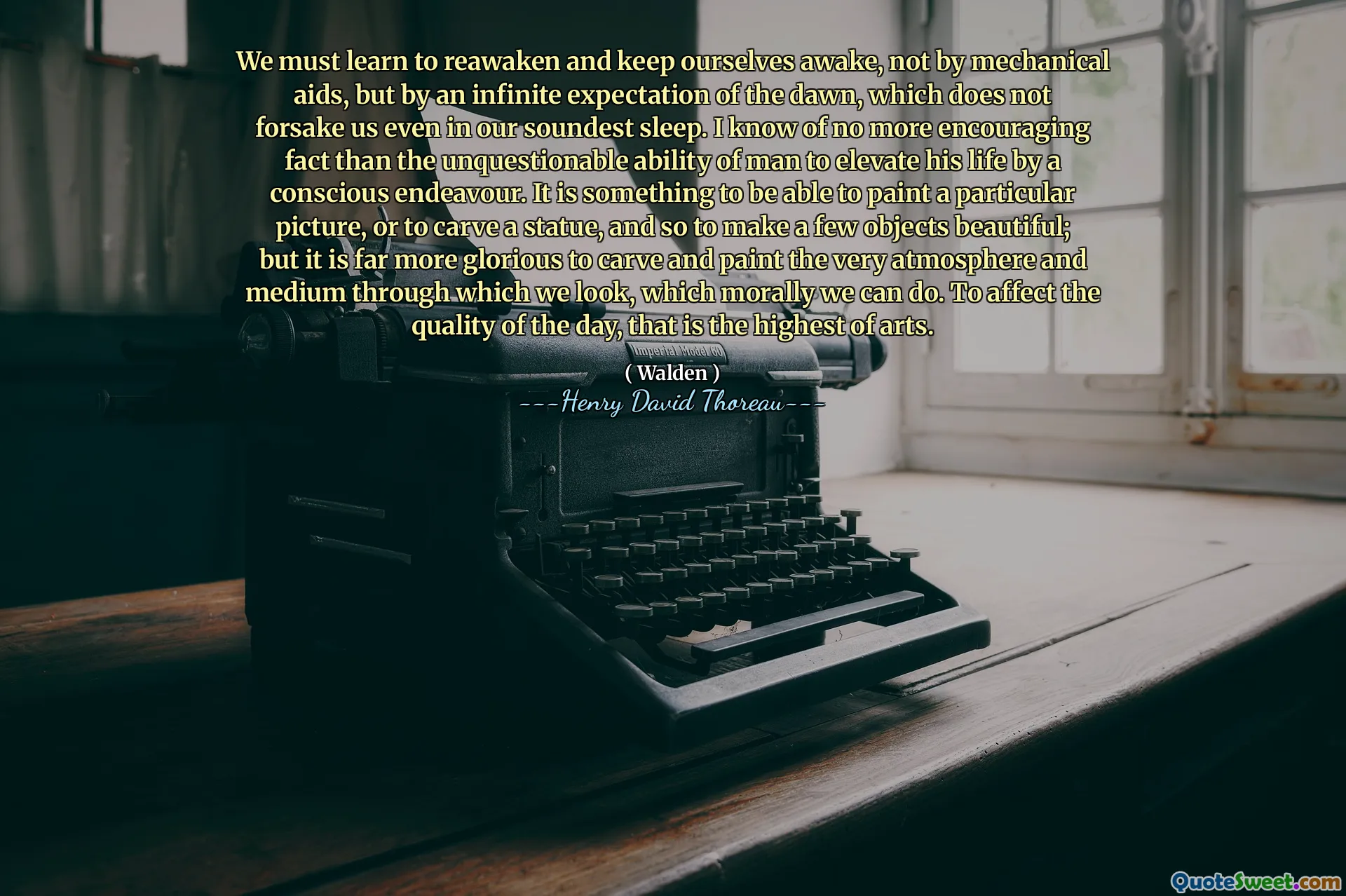
We must learn to reawaken and keep ourselves awake, not by mechanical aids, but by an infinite expectation of the dawn, which does not forsake us even in our soundest sleep. I know of no more encouraging fact than the unquestionable ability of man to elevate his life by a conscious endeavour. It is something to be able to paint a particular picture, or to carve a statue, and so to make a few objects beautiful; but it is far more glorious to carve and paint the very atmosphere and medium through which we look, which morally we can do. To affect the quality of the day, that is the highest of arts.
Henry David Thoreau’s quote resonates deeply with the enduring human pursuit of consciousness and purpose. At its core, it emphasizes that true awakening and enlightenment do not come solely from external technological aids, but from an internal, boundless hope—a sacred expectation of dawn—that sustains us even in the deepest slumber of routine or complacency. Thoreau inspires us to recognize the remarkable capacity of the human spirit to uplift its surroundings through deliberate effort. While creating tangible works of art—paintings and sculptures—can bring temporary beauty, it pales in comparison to the profound impact of consciously shaping the intangible environment we inhabit—our mindset, attitude, and perception. The act of elevating daily life is depicted as the highest art, for it influences not only our personal experience but also ripples outward, touching others indirectly. This perspective encourages mindfulness and intentionality, urging us to see ourselves as active artists of our own atmospheric space. It highlights the idea that personal growth and societal betterment originate from within, driven by deliberate effort rather than passive reliance on external substances or shortcuts. In essence, Thoreau champions the never-ending pursuit to improve ourselves and our environment, reminding us that such endeavors are not only possible but are indeed the noblest expression of human potential.








